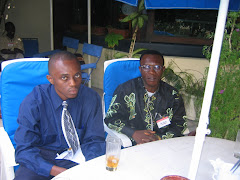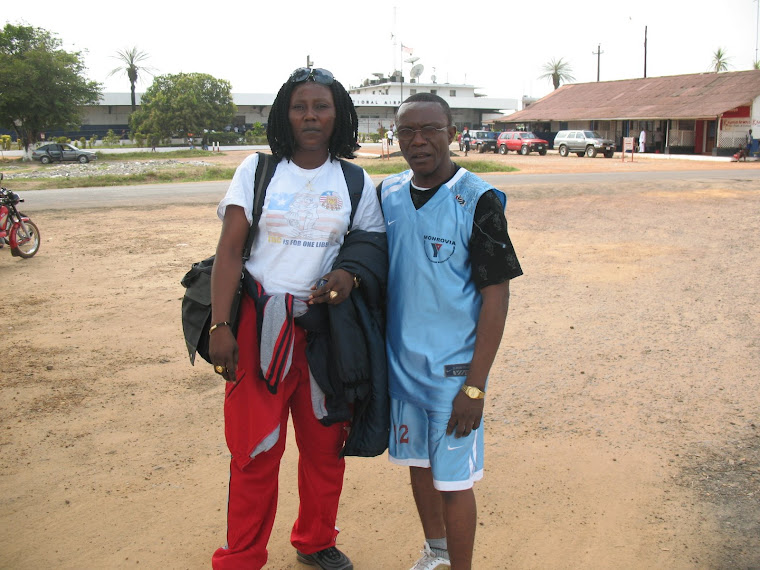 …Say Nothing Less Than Forgivingness Will Bring Genuine Peace
…Say Nothing Less Than Forgivingness Will Bring Genuine PeaceResidents of Lofa County have frowned on recommendations by the Truth and Reconciliation Commission (TRC) suggestion prosecution for of actors of the Liberian war and sanctions against those considered supporters of the wars.
The position of the Lofans followed recent report quoting some Civil Society Organizations that that would revert to the people to generate national consensus regarding the recent recommendations by the TRC providing prosecution and sanctions of people placed in varying categories.
The Lofans from five towns said nothing will bring genuine peace and reconciliation amongst the people than forgivingness, calling on the National Legislature to prudently act on the recommendations of the Truth & Reconciliation Commission in a manner that will not reverse the gains made towards peace and development made.
The Lofans, representing some towns including at a Galamai, Vomemai, Duowoiljallamai, Kaba’s Town, Beteijamai, Korwormai, Bakuma and Voinjama town, said in told a workshop in Voinjama City that it is now time for Liberians to adopt the spirit and attitude of forgivingness which, in their view, would sustain the gains made thus far. The Lofan residents further said that Liberians were tired of war, and noted that there was no need for reintroduction of acrimonies feelings amongst the people under the canopy of reconciling them. Other towns and villages represented at the workshop were Lawalazu, Zanalormai, Kolahun, Zaawadamai, Tennebu, Barkadu and Se-Mata
The spoke while making their input on the topic: Peace & Reconciliation in Post Conflict Liberia within the context of the TRC Recommendations. Most of the 26 participants of the workshop underscored the need for healing and coexistence amongst the people of Liberia instead of the tendency of fear and mixed feelings that have characterized suggestions imbedded in the findings of the TRC.
The TRC recently submitted its findings to the President and the National Legislature providing for the prosecution of warlords and their factional commanders and others labeled plunderers of the national resources during the civil conflict as well as spelling out a 30-year sanction against some public figures said to be sponsors of the civil wars, including President Ellen Johnson Sirleaf.
“If there is another conflict because people want to punish those who brought war on us, our children’s schools will further be delay, the present spirit of development in the country will die and the women who are always the foremost victims will once again be driven out of their homes into refugee camps while their husbands, children and brothers will be forced into fighting war again,” said Rebecca Samufa of Se-mata.
Farkollie Gayflor of Zanalormai interjected, saying that most of the warlords still have their fighters on the ground, who are suffering unemployment and could be induced into fighting for little or nothing, since most warlords are strategically placed and have bigger earning power that they can use to cause mishap.
“Let us not take for joke threats by the warlord that they will resist prosecution and could fight if they were to be prosecuted; I heard many others arguing that the men they say they are dependinmg on are just figure but in reality not on ground. But why should be believe in this argument in the face of the overwhelming joblessness and the increasing reports of armed robbery – why shouldn’t us think that the criminals could be hired to start a disturbance that could destroy the peace attained now,” Olive Johnson of Voinjama City argued.
Of the 26 participants, only two said the idea of prosecution and sanction for warlords, their followers and their supporters was good and could curb impunity, while the rest disagree, saying “let bygone be bygone.”
In what is considered her first public statement on the findings and Recommendations of the Truth and Reconciliation Commission (TRC), President Ellen Johnson Sirleaf says while she has always admitted her supported to former NPFL leader Charles Ghankay Taylor, she has equally expressed remorse to the Liberian people for her “misjudgment” and has enjoyed the people’s confidence by virtue of her election as President.
The President said her early support to Taylor was because of the consideration that she felt the brutality of the “dictatorship” by former President Samuel Kanyon Doe should be challenged, saying nevertheless, “…it was equally clear that when the true nature of Mr. Taylor’s intentions became known, there was no more impassioned critic or strong opponent to him in a democratic process.”
“I have talked about this openly over the past twelve years and expressed remorse to the Liberian people for my misjudgment. In turn, the Liberian people rendered their judgment,” she maintained, saying in 2005, “I was elected President of the Republic of Liberia,” the first female President of Liberia indicated saying that her mandate has become to return hope to the country and to make the children smile again.”
President Sirleaf’s National Independence Day statement in which she made the assertions constitutes her first public statement on the final findings and recommendations of the Truth and Recommendation which linked her to public sanction barring her from public office for 30 years.
President Sirleaf’s National Independence Day statement in which she made the assertions constitutes her first public statement on the final findings and recommendations of the Truth and Recommendation which linked her to public sanction barring her from public office for 30 years.
President Sirleaf accentuated, “This is as much as I can say to you as I am named in the report for sanction and I have been advised that it would be legally imprudent for me to give a more extensive comment on the report,” noting also,”... my comments could be misinterpreted as an attempt to influence what ever action the National Legislature might take on the report, and I do not intend to do so.
The President, who added that she believes in the wisdom of the Liberian people and is convinced that they will make a proper judgment on the TRC’s Final Report, told the Liberian people that she has dedicated her to navigating a future for Liberia free from war and fear and grounded in individual freedom and opportunity.
“Sometimes, the circumstances were opaque, the distinctions between evil and good were not so clear—this is the nature of conflict and war,” she indicated, noting that when on January 16, 2006 she spoke to the nation, she recognized that the vote for her was a vote for change.




No comments:
Post a Comment